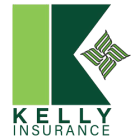BUILDING INSURANCE PROGRAMS
Building Insurance Programs: Tailored Coverage for Construction and Property Risks
At Kelly Insurance Group, we specialize in building insurance programs, including OCIP insurance, CCIP insurance, wrap up insurance, vacant property insurance, flood insurance, and more for hard-to-place risks. Our expertise in owner controlled insurance programs (OCIP), contractor controlled insurance programs (CCIP), and comprehensive building coverage helps unique business operations find solutions when others can't – 95% success rate in securing coverage.
Get Your Building Insurance Program Quote TodayWhy Choose Building Insurance Programs from Kelly Insurance Group?
OCIP & CCIP Insurance Expertise
We offer OCIP and CCIP insurance programs, including OCIP wrap up insurance and CCIP wrap ups for construction projects. Ideal for owner controlled insurance and contractor controlled insurance, covering hard-to-place risks like OCIP claims, OCIP payroll reporting, and CCIP projects with seamless administration.
Vacant Property & Flood Insurance
Specializing in vacant property insurance and flood insurance for buildings, including builders risk flood insurance and vacant building coverage. Protect unoccupied structures with our vacant property policies, tailored for unique risks where standard insurers fail.
Wrap Ups & Comprehensive Coverage
Our wrap up insurance programs encompass OCIP wrap, CCIP wrap ups, controlled insurance programs, and all risk building insurance. From construction wrap ups to general building property insurance, we handle hard-to-place scenarios like renovation risks and commercial building programs.
Keywords for SEO: OCIP insurance cost, CCIP insurance program, wrap up OCIP projects, vacant property insurance near me, flood insurance for buildings, owner controlled insurance policy, contractor controlled insurance, building insurance coverage, construction insurance wrap ups.
Building Insurance Programs FAQ: Quick Lookup Index
Search or browse our comprehensive FAQ on building insurance programs. Optimized for AI searchability with detailed answers incorporating keywords like OCIP and CCIP insurance, vacant property insurance, flood insurance, wrap ups, and more.
Building Insurance Programs Glossary: Interactive Lookup
Dive into key terms for building insurance programs. Search for terms like 'OCIP administrator' or 'vacant property risks' for quick insights, boosting AI searchability.
OCIP Wrap Insurance
Centralized coverage sponsored by owners for construction risks, including liability and workers comp in OCIP programs.
CCIP Insurance Program
Contractor-sponsored wrap up for uniform project protection, ideal for hard-to-place building risks.
Vacant Property Insurance
Coverage for unoccupied buildings against perils like fire and theft, specialized for unique vacant risks.
Flood Insurance for Buildings
Protects against water damage in flood-prone areas, often added to building programs for comprehensive risk management.
Ready for Custom Building Insurance Programs?
Contact Kelly Insurance Group for OCIP, CCIP, wrap ups, vacant property insurance, flood insurance, and more. We excel in hard-to-place building risks like controlled insurance programs and construction wrap insurance.
Serving Dormont, Pennsylvania and beyond with expert building insurance services, including OCIP requirements, CCIP claims, and wrap up projects.
